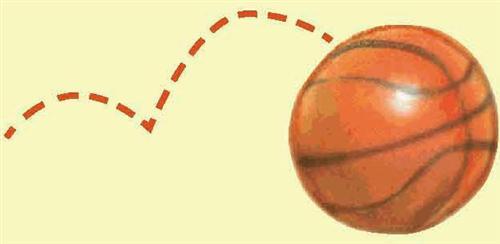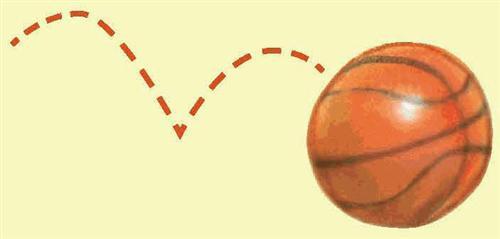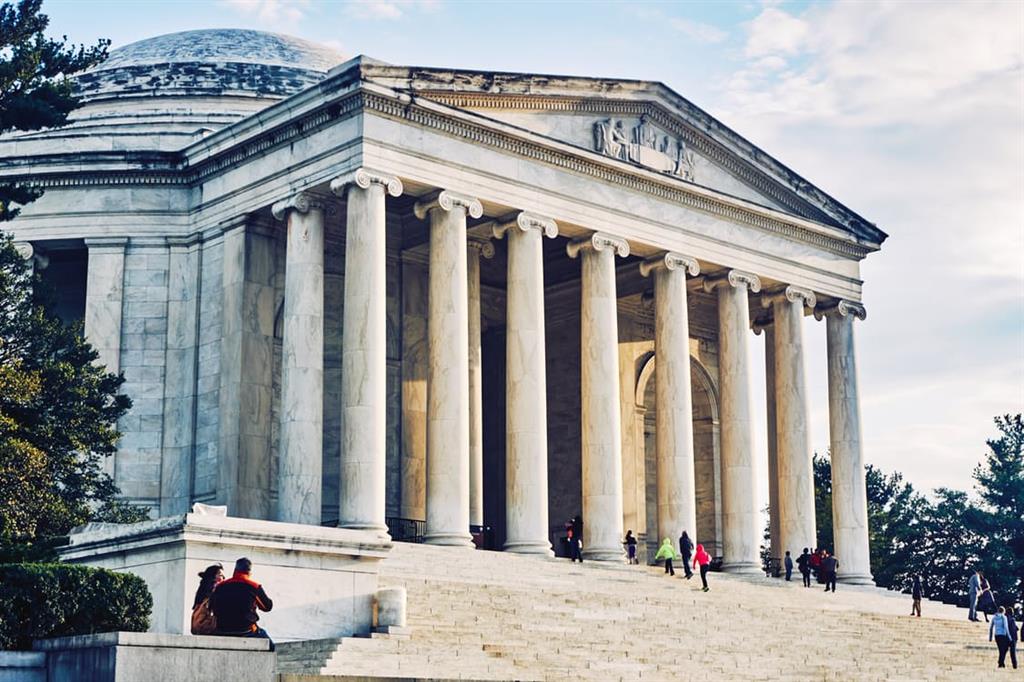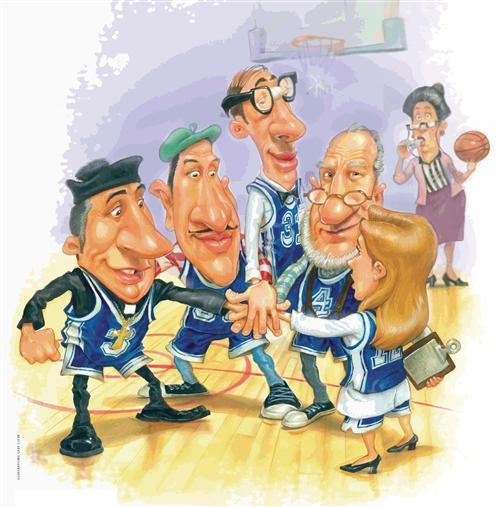
Whether cranking microfilm, scouring books, creating elaborate family trees or perusing online databases until the wee hours of the morning, genealogists typically spend a great deal of time in solitude. But truth be told, we can’t always find the documents or other information we need on our own. Genealogy isn’t like tennis or running-it’s a contact sport. We need research buddies to encourage us, experts to help us unravel family mysteries and kindly volunteers to do long-distance lookups, just as a basketball team needs a coach to orchestrate plays, players to execute them and fans to cheer on the team.
If you’ve ever played basketball or any other organized sport, you’ve probably heard your coach utter the clicheé: “There’s no I in team.” Now you can use that as a mantra for your family history research. Not sure who to pick for your genealogy squad? We’ll help you discover 17 all-stars every family historian needs. So slip on your sneakers and grab your research binder: It’s time for tipoff.
1. Aunt Sally
Your first choice for your genealogy teammates should be your family. Who knows your past better than they do? Ask relatives for documents, photos and other items that can defend facts and family lore. You never know-Aunt Sally might be hiding a family Bible, Grandma’s old diary or another valuable home source in her attic. When interviewing relatives, be sure to ask when and where events happened so you can understand the time and place. Keep your family members informed about any key research finds-maybe you’ll inspire one of them to get the genealogy ball rolling, too.
And don’t forget to bring children and young adults into the game. Show them the family tree or the photos of Grandma and Grandpa as youngsters. Enlist the kids’ help with scrapbooking, or play a family history board game with them. After all, they’re the generation you’ll entrust with your charts, data, photographs and other materials, and they’ll be responsible for passing on your family’s legacy. For tips on getting kids involved in genealogy, read our online article “Junior Genealogists” <www.familytreemagazine.com/articles/oct0l/kids.html>.
2. Government office clerk
Documents are essential pieces of our family history puzzles, and you’ll undoubtedly find yourself making numerous requests for birth, death, marriage and other civil records from government offices. Because of the ever-growing interest in genealogy, local town and county clerks may feel caught up in a full-court press of vital-records requests. So try to visit the office in person if possible-it might give you a competitive edge over mailed-in requests. Call first or check the office’s Web site for guidelines on getting records. You can locate local government offices at State and Local Government on the Net <www.statelocalgov.net> or the USGenWeb Project <www.usgenweb.org>. And always behave courteously-you don’t want the clerk to bench your records request week after week just because you had a bad day and took it out on him or her. Remember: The clerk’s primary duty isn’t combing the files for your family’s records.
3. Family History Library volunteer
The Church of Jesus Christ of Latter-day Saints’ Family History Library (FHL) <www.familysearch.org> in Salt Lake City and its branch Family History Centers (FHCs) around the world give you access to millions of records, including microfilm and electronic data collections. Each location has volunteer staff on hand to lend assistance-they’ll steer you in the right direction until you’re able to execute the research plays on your own. Get to know the volunteers at your local FHC: They can help acclimate you to the microfilm reader or copier, show you how to navigate the online FHL catalog and direct you to useful genealogy books or copies of local family histories in the collection. In addition, the staff may know several regulars at your center and be able to put you in touch with someone who has research interests that are similar to yours.
To find your nearest FHC, go to the FamilySearch home page and enter your state, province or country in the Find a Family History Center Near Your Home search box, or click on Advanced Search for more-specific searching. For more information on the FHL, see the October 2005 Family Tree Magazine.
4. Funeral home director or cemetery caretaker
If your contact at the vital-records office can’t locate the death records you need, try getting in touch with the funeral home director or cemetery caretaker from your ancestor’s town.
Although most visitations of the deceased now take place at funeral homes, this is a relatively new tradition. In fact, before 1900, viewings often happened in the family’s home or another private residence. Someone from the town would act as the undertaker. To find facts on your ancestors, you’ll want to determine who provided mortuary services near your ancestor’s place of death: The mortician may have kept records such as the name and address of the deceased, date of death and next of kin. Look in city directories, which often feature indexes to advertisers-including local undertakers. Keep in mind that some undertakers worked freelance, and morticians didn’t form any national associations until 1882. Even if the funeral home in question is no longer in business, the records may still exist. First, check the FHL: Go to the FamilySearch home page, click on Guides, followed by Research Outline, and then Sorted by Subject. Look for the Business Records and Commerce United States Research Outline. Next, check currently operating funeral homes (find them at <www.funeralnet.com>), as well as local historical societies and the genealogy section at your library.
Similarly, a cemetery caretaker can provide details on who purchased each cemetery plot, where the plot’s located and who’s buried in it. He often can help you sort out details and save you the time of aimlessly wandering the cemetery in search of your ancestor’s final resting place.
5. Clergyman
When basketball teams huddle up before a big game, they often perform a good-luck ritual-shouting a chant to get fired up or perhaps praying they’ll make all their shots. You too can turn to a higher power for a genealogical assist: A priest, minister or rabbi at your ancestor’s house of worship can help you access information in church books and histories, cemetery records, old photographs and more. He (or she) can guide you to records for milestone events in your ancestors’ lives, such as baptisms, marriages and burials.
Keep in mind clergymen aren’t researchers and have many parishioners to serve. When writing to a priest in your ancestral village, keep your requests to a minimum. Be sure to ask the priest if he’d be willing to photocopy the original record, otherwise he’ll probably only transcribe the necessary information-not all of it.
If a clergyman is hesitant to help, don’t despair. A friendly gesture, such as giving a small monetary donation or volunteering your time for a church activity, can sometimes aid your own cause.
To score bonus points after you receive information, give something in return. If you live nearby, you could attend a church function-perhaps bingo night or the church festival. If you live out of town, contribute to a fund for church repairs or records preservation. After you’ve prepared your family history book or report, donate a copy to the church.
6. Librarian
As with a referee, it’s always best to have the librarian on your side. Making an effort to really get to know your librarian can unlock a treasure chest of resources that advance your family history research.
No matter what type of library you’re using (a community, college, hospital or government respository, for example), librarians are there to help you. Reference librarians in particular-especially those in the history or genealogy department-can field countless questions, tell you about the information available and guide you to the appropriate resources. You might even find a super-friendly librarian who will notify you when the library acquires a new book you’d be interested in, or when remote access to the repository’s subscription databases becomes available.
Remember to be patient when dealing with your librarian-he or she has other responsibilities besides attending to patrons. And don’t overstay your welcome: Know the library’s hours of operation and be sure to leave before the final buzzer. Consult <www.cyndislist.com/libes.htm> for basic information on national, state and local repositories, and to find out which libraries have online card catalogs you can access.
7. Preservation expert
Have an old family Bible, a tattered 1845 baptismal certificate, your great-grandfather’s high school basketball uniform or your grandmother’s wedding dress? You may need to consult a professional archivist for advice on the best way to preserve your family heirlooms. To locate one, contact the Academy for Certified Archivists <www.certifiedarchivists.org>, the International Council on Archives <www.ica.org> or the Society of American Archivists <www.archivists.org>. Archivists charge fees for their expertise, but they also may teach free classes or workshops at local genealogical or historical society meetings.
Library preservation departments may offer advice or assistance for conserving paper documents, too. For example, Bowling Green State University’s Center for Archival Collections <www.bgsu.edu/colleges/library/cac/askarch.html> provides some minor repair, decidification and encapsulation services for a fee. Check with your local public or university library to see if it has similar services.
Additionally, museum curators preserve the past on a larger, community level and may be able to help you determine the year, type or value of an item tha’s not clearly marked or identified. You also can contact curators if you wish to donate items from your own family to museum collections. For an online directory of museums in the United States, see The Virtual Library <vlmp.museophile.org/usa.html>. Find out the curator’s name by checking the museum’s Web site for the staff directory. If the curatotr’s not listed, call the facility and ask to speak to her. Then you can see if she’s willing to help (or if she could recommend someone who can) and make an appointment if necessary.
8. Relative in your ancestral village
Connecting with a family member or another resident (a mayor or priest, for instance) from your progenitor’s hometown or village can open up overseas doors that you’d never imagined. The person might have family photos or documents you need, or she might offer you a place to stay when you make a trip to the old country. Try searching foreign phone books at InfoBel.com <www.infobel.com/teldir> for contact information. Enter the town name and your surname at Yahoo! <www.yahoo.com> to find e-mail lists or message boards to join or post queries on. This will help you network with other researchers and identify possible relatives.
When writing letters to relatives, remember to keep it short and simple: Tell them who you are and why you’re writing. Don’t bombard them with all your questions at once or ask them to start researching records immediately. Instead, take time to get to know faraway family. Ask them general questions about your family name and other relatives. You may even want to include a photograph or document as an icebreaker and proof of your identity. If possible, have your letters translated (foreign family may not speak English) and include two to three international reply coupons (which you can get at your local post office).
9. Society member
Local and national genealogical and historical societies are great tools to meet researchers who share your passion for genealogy. You usually can find family history groups in the city or town where your ancestors lived. Ethnic organizations such as the Ancient Order of Hibernians in America <www.aoh.com> and the Federation of Eastern European Family History Societies <www.feefhs.org> are excellent resources, too.
Members of these groups can become integral players on your genealogy team, as they’ll listen to your genealogical quandaries and perhaps offer advice to help you drive down the lane through your brick walls. Many of these groups meet regularly and sponsor annual conferences that provide opportunities to connect and recruit even more researchers to your team.
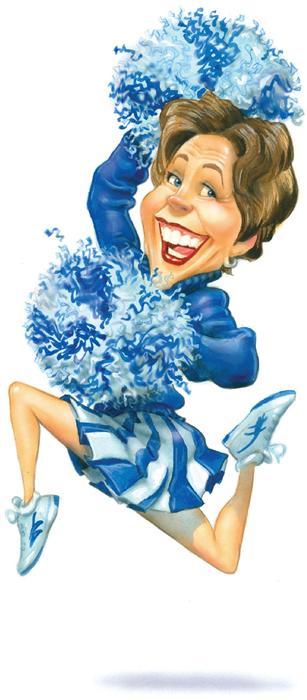
10. Genealogy buddy
At some point in your family history quest, you’ll come to a brick wall so big you’ll feel like giving up. That’s where your research buddy-aka personal genealogical cheerleader-comes in. Just when you think you’ve exhausted every possible avenue, your buddy will root you on to victory. She’ll encourage you to look at that microfilm again or locate the seemingly impossible-to-pinpoint port of arrival for your immigrant ancestor. In turn, you can give her a pep talk and lend your research expertise when she’s facing a genealogical challenge.
Don’t have a close pedigree pal? At society meetings or the library, try to team up with another local family historian who shares your research interests.
11. Virtual research assistant
Need a long-distance lookup? You’ll want to find a friendly family historian in your ancestral hometown: For starters, try hooking up with a volunteer from the Random Acts of Genealogical Kindness project <www.raogk.org>. These kind souls have agreed to do local research tasks for distant family historians at least once per month. After you get your request answered, the volunteers ask that you return the favor in your area. Note that volunteer doesn’t mean free: You’re expected to reimburse the researcher for any expenses (such as copying costs) he or she incurs while fulfilling your request.
You also can connect with people studying the same surnames or geographic locations you’re researching through message boards such as the ones at Ancestry.com <boards.ancestry.com> and GenForum <www.genforum.com>. Or sign up for an online genealogy course so you can meet other students virtually.
12. Translator
Having trouble distinguishing the Xs and Os in Great-great-grandma’s diary? Puzzled by Latin words such as consanguinitas, or confused about other words scribbled in old church records? The foreign documents we seek usually are written in our ancestors’ native tongues, making the contents difficult to read and interpret. A translator can act as your team’s assistant coach-he can explain those Xs and Os in ways the coach might not be able to, thus helping you better understand the information you’ve found. Using a translator to decipher foreign documents and alphabets will save you valuable research time and aid you in obtaining key details about your ancestors.
Where would you look for a foreign-language expert? You might try the free, family history-focused translator network e-transcriptum <www.e-transcriptum.net>. For tougher jobs, you can get some foreign-language help from the professionals at Translatorsbase.com; just supply details about your document at <www.translatorsbase.com/post_project.asp>, and you’ll get price quotes from qualified experts. You also could contact the foreign-language department of a nearby university: It might have graduate students or professors who are native speakers.
13. Town elder or historian
Meeting with a town elder or historian in your ancestor’s hometown is one of your best bets for finding the missing pieces of your family history puzzle. This person most likely remembers key names, dates and places, and can tell great stories about the town and its people. Perhaps he’ll tell you about the time your great-grandfather scored the winning shot in the state basketball tourney, or the day an earthquake leveled several houses in the village, including your grandmother’s. Check with the local historical society, library or city hall to find out whether the city or town you’re researching has a historian. Use a search engine such as Google to search for the town name plus the words town historian. You also can browse RootsWeb <www.rootsweb.com>, USGenWeb and WorldGenWeb <www.worldgenweb.org> to learn about the resources available in your ancestral state and county.
14. Professional genealogist
Some family history challenges are just too much-or too far away-for amateur genealogists to handle by themselves. For example, the document you need may be in a different state or country from where you currently live. In such cases, you can take your game on the road without leaving home: Simply hire a professional researcher who’s familiar with the area’s geography, history and languages to dig up the records you need. Employing a pro isn’t cheap, but it might be the most effective strategy for locating multiple records overseas. You can find a pro through the Association of Professional Genealogists <www.apgen.org>, Board for Certification of Genealogists <www.bcgcertification.org> or International Commission for the Accreditation of Professional Genealogists <www.icapgen.org>.
15. Computer guru
Technology (particularly Internet) has revolutionized genealogy. If you rely heavily on computers in your research, it’s nice to have an expert in your playbook for when you experience high-tech dilemmas. Your guru can be a webmaster, hardware specialist, software developer or digital photography expert-but he doesn’t necessarily have to be a professional. You could enlist the assistance of your computer-geek nephew to install your new genealogy software, or ask your Web-savvy granddaughter to set up your family history Web site. For extra tech support, consider joining a genealogy-centered computer club such as the Silicon Valley (Calif.) Computer Genealogy Group <www.svpafug.org> or the Toledo (Ohio) Genealogy by Computer Society <www.gcstoledo.org>.
Finally, don’t overlook the value of corresponding with amateur photo sleuths. Try posting your unidentified photographs to such Web sites as Ancient Faces <www.ancientfaces.com> and Dead Fred <www.deadfred.com>. Perhaps someone will recognize the people in the pictures and contact you with the details.
17. DNA specialist
Genetic genealogy is growing in popularity among family historians and is quickly becoming an essential research tool. If you’re interested in DNA testing, you’ll need to contact a testing company such as Relative Genetics <www.relativegenetics.com> or AncestryByDNA <www.ancestrybydna.com> to order a test kit, gather information and obtain results. You could join a Y-DNA project focused on your surname — testing company FamilyTreeDNA <www.familytreedna.com> hosts nearly 2,500 of them.
But how do you demystify the science and keep tabs on new DNA developments? You’ll need to rely on “veterans” such as Megan Smolenyak, who dispenses advice via her Genetealogy Web site <www.genetealogy.com> and Trace Your Roots with DNA (Rodale), a book Smolenyak co-authored with Ann Turner.
Locating other DNA gurus isn’t as tough as you might think: Try contacting the leader of an applicable surname study. Sign up for the Genealogy-DNA Mailing List at <lists.rootsweb.com/index/other/DNA/GENEALOGY-DNA.html>. Or consider joining the International Society of Genetic Genealogy <www.isogg.org>.
As you recruit players for your family history team, you may find yourself getting picked for other researchers’ squads. Remember: You, too, can share your research skills, lend support to a genealogy buddy and transcribe tombstone inscriptions at a nearby cemetery for a long-distance genealogist. When you give back, your research will come full circle, and you’ll show true team spirit. So devise your game plan, assemble your team and put forth your best effort. You’ll be on your way to scoring a genealogical slam dunk in no time.
Playing by the Rules
As you start rounding up players for your genealogy team, keep these five guidelines in mind:
? Call the play. Think about the best method for contacting your source: E-mail? Telephone? Letter? In person? Sometimes you might use more than one method. Search the Internet to find guidelines on contacting individuals from organizations and government agencies
? Show good sportsmanship. Saying “please” and “thank you” goes a long way Practice patience if you don’t receive an immediate response or result, and try again Avoid taking confrontational approach and remember to play fair-if other researchers share information with you, return the favor whenever possible
? Watch the clock Be brief with your requests, especially those directed to overworked staff in libraries, government offices and churches. Fill out necessary forms ahead of time (when possible), and call ahead to see if you need to arrange an appointment. When conducting interviews with family members, set a one-our time limit (but don’t interrupt the person if he wants to continue talking). Respect your interviewee’s time and comfort level.
? Keep team secrets. Provide only the necessary information initially. Don’t share intimate personal details about your family (particularly living relatives) with strangers, whether you’re contacting them in person, by telephone or through e-mail Use a separate e-mail account for genealogical requests, and consider renting a post office box for other correspondence to avoid giving out your home address.
Winning Strategies
Want to build great rapport with your teammates? Practice these five principles to manage your recruits:
Make a roster. Whenever you contact someone else to request family tree information, remember the five Ws: who, what, when, where and why. Always write down the person’s first and last name (ask him to spell it), job title, the date you made the contact and the nature of the message or interaction. Keep a notebook or your PDA handy to quickly record this information during telephone or face-to-face interactions.
Get an Internet assist. Search the Web for contact information. Use <www.whitepages.com> or <www.switchboard.com> to find individuals. Look up phone numbers and e-mail adresses for library, government and society staff on the organization’s Web site. (You usually can find these under a Contact Us, About Us or similar Link.)
Pick the right play. You wouldn’t e-mail an elderly relative who doesn’t use a computer. So if a Web site instructs you to call the person or submit at request via snail mail, follow the directions. If a site asks you to complete an e-mall form, do it. Be sure to follow the instructions completely.
Rebound. Don’t let your queries disappear into the genealogical abyss. Follow up after a reasonable amount of time. For personal contacts, try again in about two to three weeks. When requesting documents, if the normal response time is six to eight weeks and you don’t receive a response by week nine, send another request (and be sure to reference your first one).
Organize your playbook. Avoid keeping contacts on sticky notes or small slips of paper. Create a labeled folder for each contact, where you can store copies of key documents such death certificate request forms, lists of oral history questions and hard copies of e-mails. To keep track of general research requests, download our free Correspondence Log from <www.familytreemagzine.com/forms/download.html>. If you prefer, you could electronically organize your roster in a Microsoft Excel spreadsheet or your genealogy software (most programs have a section for recording contacts and tasks). See the October 2005 Family Tree Magazine for more organization tips.
From the April 2006 issue of Family Tree Magazine.

